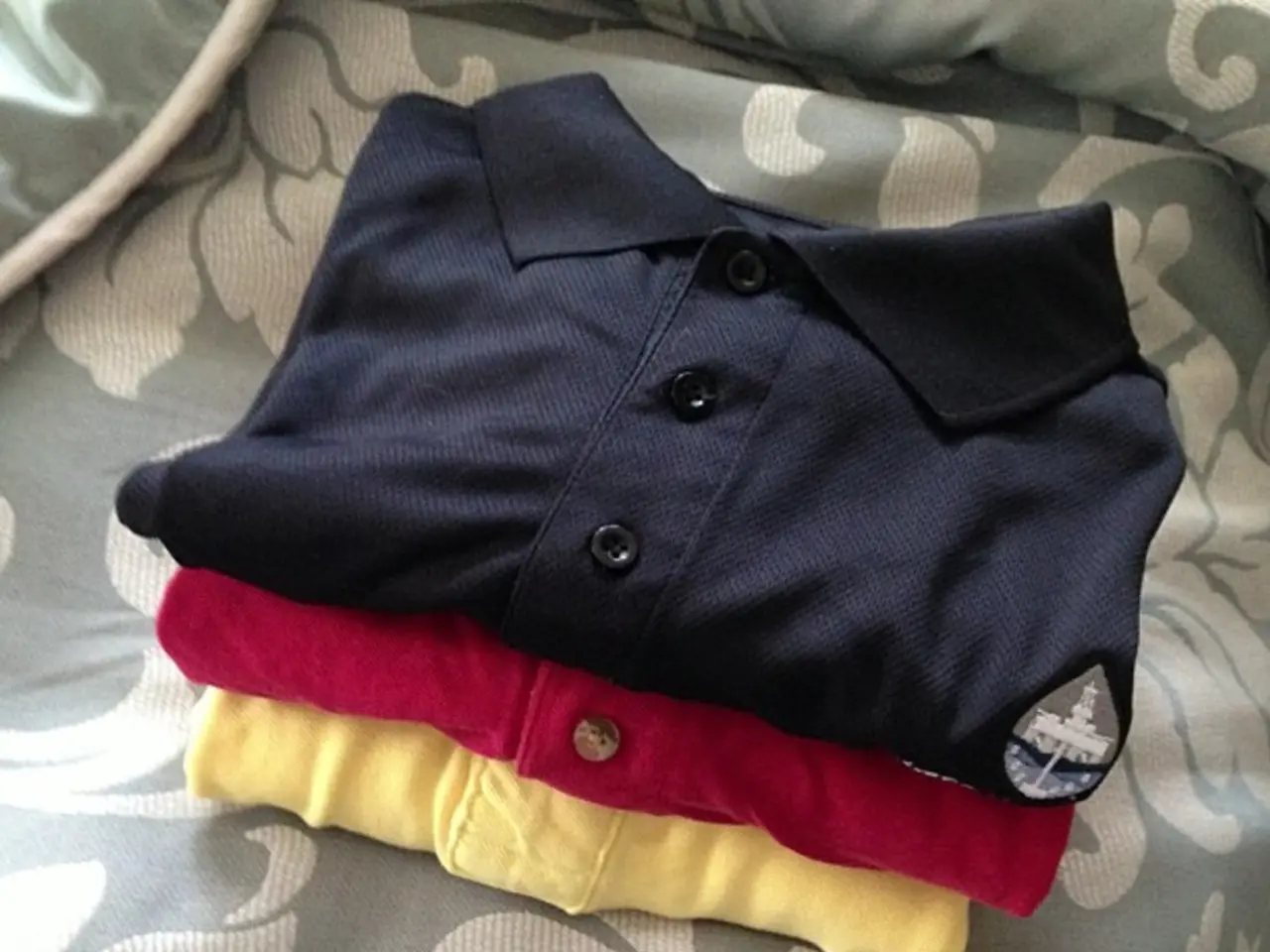Portugal's path towards sustainability within the textile sector offers a blueprint for Europe's fabric industry
The European Union is leading the charge towards a more sustainable and circular textile industry, with Portugal playing a significant role in this transformation. The EU's Strategy for Sustainable and Circular Textiles, coupled with legislative actions like Extended Producer Responsibility (EPR), is shaping the textile sector to become climate-neutral, focusing on durable, reusable, repairable, recyclable, and energy-efficient products.
By 2025, half of the garments sold in the EU are expected to be prepared for reuse or recycling, a commitment that extends to all member states. The updated Waste Framework Directive places producers at the centre of the circular textiles economy, encouraging smarter design, advanced sorting, and recycling systems.
The EU's vision doesn't stop there. The forthcoming Circular Economy Act, planned for adoption in 2026, aims to establish a single market for secondary raw materials, increase the supply and demand for recycled materials, and foster economic resilience and decarbonization. This Act supports strategic autonomy by reducing dependency on imported critical raw materials for green technologies, indirectly affecting textile-related supply chains.
Portugal, with its 18% share of all employment in manufacturing industries and 9% of the country's exports, is making its mark in the sustainable textile movement. The "Made in Portugal" label, renowned worldwide, is increasingly associated with sustainability and circular economy. Portuguese textile companies prioritise careful selection of raw materials, intelligent resource use, efficient production methods, cleaner energy, waste minimisation, recycling, circular economy, transparency, traceability, and lifecycle assessment.
One such company, JF Almeida, is setting an example. They use recycled plastic bags for yarn packaging, making efforts to reduce paper consumption by 30% annually. Their innovative 360-yarn fabric, produced from waste from their internal manufacturing process, has the potential to create a 100% waste-free towel. In addition, JF Almeida has reduced CO2 emissions by 2358 tonnes between 2016 and 2021 and saved nearly half a million euros in energy costs through more energy-efficient processes and greener energy sources.
Moreover, JF Almeida recycles and reuses 40% of the water that enters their dyeing plant, reducing water consumption by 12% in 2021. This water efficiency is remarkable, considering that washing clothes at home requires approximately 20 litres of water per kilogram of clothing, while the Portuguese textile industry has managed to use less water producing clothes than it takes to wash them at home.
The war in Ukraine, a significant supplier of raw materials like cotton, synthetic fibres, or chemicals relevant to textiles, may disrupt supply chains, increase costs, and create market uncertainties in Europe. However, precise, up-to-date impacts were not covered in the search results, and for detailed analysis, specialized trade and industry reports would be needed.
The European Commission is also working on a "transition pathway" for a sustainable and digital textile ecosystem, planning to review textile labelling regulation, including compulsory sustainability and circularity elements. An online survey for industry companies is currently available, leading to workshops in the summer and autumn.
Portugal's textile industry, representing 5% of the total EU textile and clothing industry, is increasing its visibility as a sustainable leader, promoting in third markets, particularly those prioritising sustainability and circular economy. With a turnover of 7.8 billion euros, Portugal ranks 5th on the European market in terms of turnover.
In conclusion, the EU and Portugal are driving the textile industry towards a sustainable and circular future. The forthcoming Circular Economy Act, support projects for textile waste valorization, and the commitment of companies like JF Almeida are crucial steps towards this goal. However, the impact of the war in Ukraine on the European textile industry remains to be seen, requiring further investigation.
- The European Union is striving to make the textile industry climate-neutral by focusing on sustainable and circular textiles, with Portugal playing a significant role.
- The EU's Strategy for Sustainable and Circular Textiles, coupled with legislative actions like Extended Producer Responsibility (EPR), encourages smarter design, advanced sorting, and recycling systems in the textile sector.
- By 2025, half of the garments sold in the EU are expected to be prepared for reuse or recycling, as part of a broader commitment to the circular economy across member states.
- Portuguese textile companies prioritise sustainability, intelligent resource use, efficient production methods, cleaner energy, waste minimisation, recycling, and lifecycle assessment in their operations.
- Businesses in the fashion-and-beauty, education-and-self-development, and finance industries can contribute to this effort by adopting eco-friendly practices and investing in sustainable textiles.
- The EU's forthcoming Circular Economy Act aims to increase the supply and demand for recycled materials, foster economic resilience and decarbonization, and reduce dependency on imported critical raw materials for green technologies.




